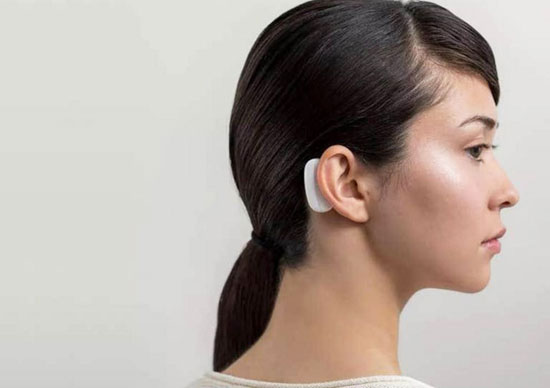Brain-computer interface will make people telepathic, scientists say
Neural interfaces that link human brains to computers using artificial intelligence will allow people to read other people’s thoughts, according to leading scientists.
A recent report by the Royal Society outlines the effects of such technology but warns that there could be severe risks if it falls into the wrong hands.

Brain-computer interfaces are already being developed by Facebook and Elon Musk’s Neuralink and the report estimates that by 2040 neural interfaces will be an “established option” for effectively treating diseases like Alzheimer’s.
More futuristic applications are expected to follow, such as brain implants that allow people to virtually taste, smell and see without actually physically experiencing the sensation. The report also details how such hardware could boost people’s memory, improve their vision and even allow thoughts to be transmitted from one person to another.
“People could become telepathic to some degree, able to converse not only without speaking but without words – through access to each other’s thoughts at a conceptual level. This could enable unprecedented collaboration with colleagues and deeper conversations with friends,” the report states.
“Not only thoughts, but sensory experiences, could be communicated from brain to brain. Someone on holiday could beam a ‘neural postcard’ of what they are seeing, hearing or tasting into the mind of a friend back home.”
The report calls on the government to launch a national investigation into this emerging field in order to shape the development of the technology. It outlines the ethical concerns of the technology, such as protecting privacy and preventing it from being used as a tool for surveillance.
Questions are also raised about how such technologies affect what it means to be human. If implantable chips take control of certain decision processes, is that person still themselves or are they now part-machine?
“The applications for neural interfaces are as unimaginable today as the smartphone was a few decades ago,” said report co-chair Christofer Toumazou, a professor of engineering at Imperial College London.
“They could bring huge economic benefits to the UK and transform sectors like the NHS, public health and social care, but if developments are dictated by a handful of companies then less commercial applications could be side-lined. That is why we are calling on the government to launch a national investigation.”
Elon Musk unveils Neuralink “threads” that hook human brain directly to computers
Last year (2019), Neuralink made its first major announcement by unveiling implantable “threads” that link a human bran directly to a computer.
It is aimed at helping paraplegics control computers in order to improve the communication skills but Neuralink CEO Elon Musk said the technology will “ultimately achieve a sort of symbiosis with artificial intelligence”.
Mr Musk has consistently warned about the dangers of advanced artificial intelligence, claiming that in the future humans could fall so far behind machines that they eventually view humans in the same way humans currently view house pets.
“I don’t love the idea of being a house cat, but what’s the solution?” he said during a tech conference in 2016. “I think one of the solutions that seems maybe the best is to add an AI layer.”
Key to achieving this parity with advanced AI, he said, is the sort of “neural lace” that is being developed at Neuralink. His company plans to begin clinical trials of the technology this year.

A fully implantable neural interface developed by Elon Musk’s Neuralink connects to the brain through tiny threads
Facebook has described this new cyborg era as “the next great wave in human-oriented computing” and is working on a headset that is perhaps the first step towards telepathic communication.
The technology giant published a paper in Nature Communications describing a headset that can transfer a person’s thoughts directly onto a computer screen. For now it can only decode a small selection of words but the firm hopes it will one day work seamlessly to transcribe thoughts.
“Imagine a world where all the knowledge, fun, and utility of today’s smartphones were instantly accessible and hands-free,” Facebook wrote in a blog post at the time.
“A decade from now, the ability to type directly from our brains may be accepted as a given. Not long ago, it sounded like science fiction. Now, it feels within plausible reach.”
yogaesoteric
January 16, 2020
